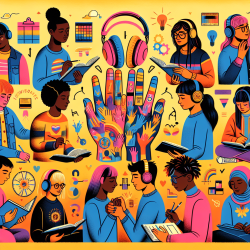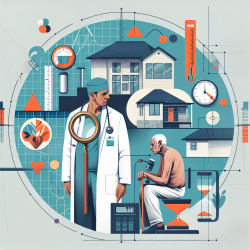Introduction
In the realm of speech-language pathology, understanding the nuanced factors that influence communication and cognitive development is crucial. Recent research, such as the study on the adapted Historical Loss Scale (aHLS) and Historical Loss Associated Symptoms Scale (HLASS) among Native Hawaiian adults, offers valuable insights into the impacts of historical trauma. This blog post aims to guide practitioners in leveraging these findings to enhance their practice and encourage further research.
Understanding Historical Loss and Its Implications
The study conducted by Antonio et al. (2024) investigates the psychometric properties of the aHLS and HLASS, which were adapted to better reflect the experiences of Native Hawaiians. The research identified three factors within the aHLS: General loss of culture, Intergenerational loss, and Distrust and destruction of traditional foods. Similarly, the HLASS highlighted Depression and Anger, Shame and Anxiety, and Re-experiencing, fear, and avoidance as key factors.
These findings underscore the importance of recognizing historical trauma as a determinant of health, particularly in Indigenous communities. By measuring historical loss and its associated symptoms, practitioners can gain a deeper understanding of the challenges faced by Native Hawaiian communities and work towards developing culturally responsive interventions.
Implementing Research Findings in Practice
For practitioners working with Native Hawaiian children, incorporating the insights from this study can significantly enhance therapeutic outcomes. Here are some strategies to consider:
- Integrate Cultural Context: Understanding the cultural and historical context of Native Hawaiian communities can inform the development of tailored interventions that resonate with the children and their families.
- Address Intergenerational Trauma: Recognizing the impact of intergenerational trauma on communication and cognitive development can help practitioners create supportive environments that foster resilience.
- Collaborate with Community Leaders: Engaging with community leaders and elders can provide valuable insights and support the co-creation of culturally appropriate therapeutic approaches.
Encouraging Further Research
While the study provides a solid foundation, further research is needed to explore the long-term impacts of historical loss on communication and cognitive development in children. Practitioners are encouraged to collaborate with researchers to investigate these areas and contribute to the growing body of knowledge.
Future studies could focus on:
- Longitudinal analyses to track the impact of historical trauma over time.
- Exploring the effectiveness of culturally tailored interventions in improving communication outcomes.
- Examining the role of community and family support in mitigating the effects of historical loss.
Conclusion
The insights gained from the psychometric analysis of the aHLS and HLASS offer valuable opportunities for practitioners to enhance their practice and contribute to the well-being of Native Hawaiian communities. By understanding and addressing historical trauma, we can work towards creating more equitable and supportive environments for all children.
To read the original research paper, please follow this link: A psychometric analysis of the adapted historical loss scale and historical loss associated symptoms scale among native Hawaiian adults.










